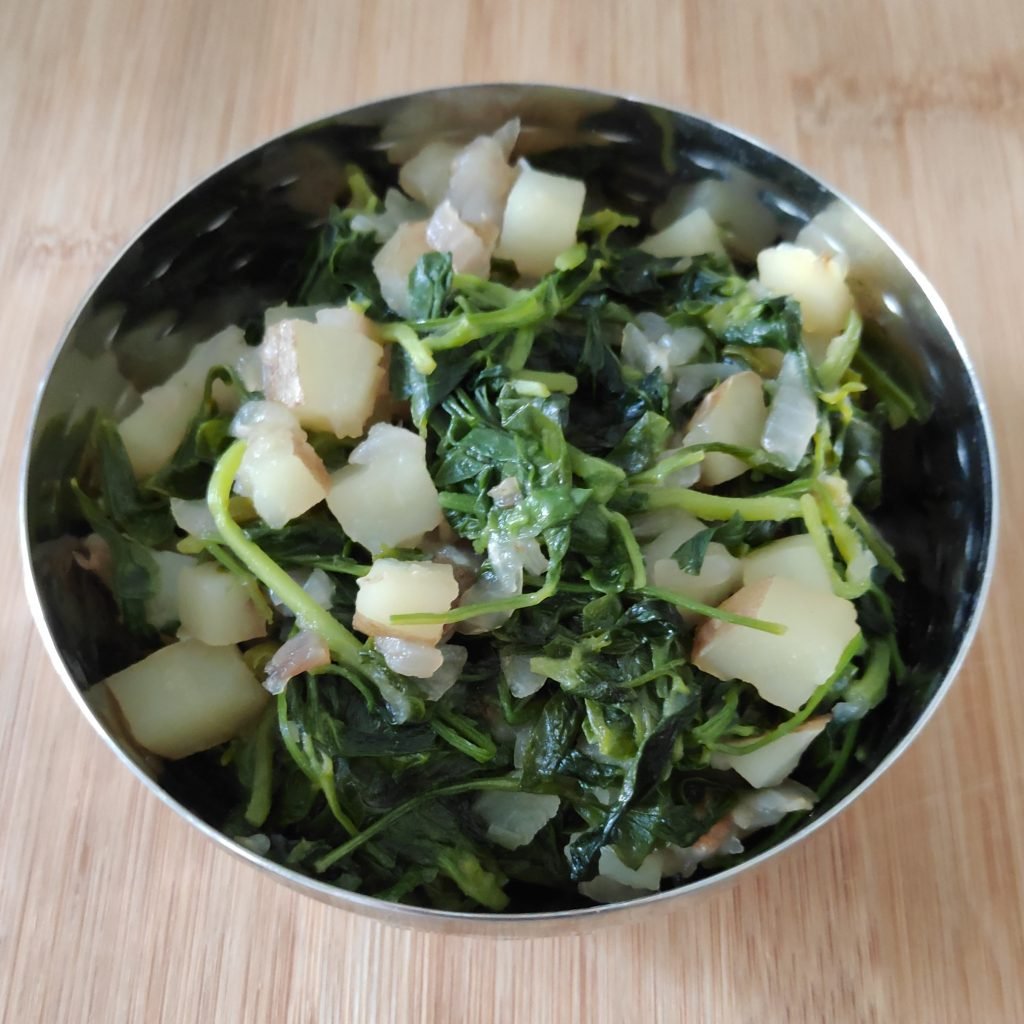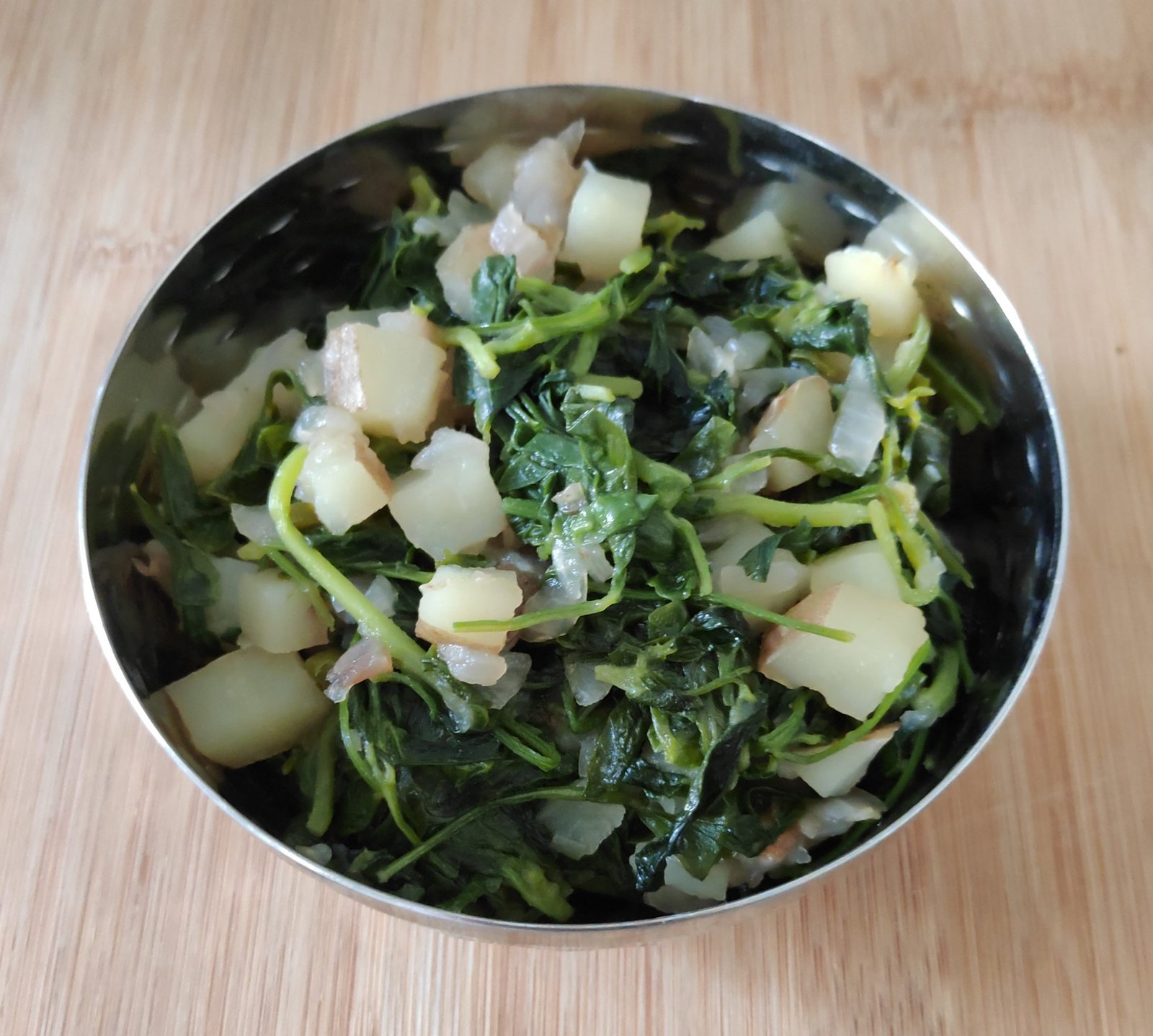Recipe Credit: Darshana Muzumdar
Serves 4 as part of an Indian meal
Ingredients
- 2 bunches of methi (fenugreek leaves)
- 2-3 medium sized potatoes
- 2 onions, finely chopped
- 2-3 green chillies (adjust to taste)
- 1 tsp jaggery or to taste
- 2-3 tbsp groundnut oil, preferably cold pressed
- salt to taste
Method
Clean the methi leaves (fenugreek leaves) putting only the leaves and tender tops of the stalks in a large pot. Wash and drain. Peel and dice the potatoes into 3/4-inch cubes or smaller. Heat oil in an Indian kadhai (Indian wok) and sauté the onions till they are translucent and soft and lightly golden brown. Add the chillies and fry for around 30 seconds more. Add the diced potato and sauté for a couple of minutes. Add the clean methi leaves, jaggery and salt, and mix it well. Add salt and jaggery to taste. Cover the pot and cook on low heat and until the potatoes have become soft and are cooked well.
Note: Methi needs to be cooked well otherwise it may taste a bit bitter.
For the Whole-Food Plant-Based (WFPB) version:
Use rock salt instead of refined salt.
Do not peel the potatoes.
Use date or raisin paste instead of jaggery.
Do not use oil. For the whole plant version do not use oil. Add a little salt to the chopped onions and keep them aside in a thick bottom steel pot for 15 minutes for them to release moisture. Turn on the heat and sauté it. Add a couple of tablespoons of water or more, if necessary, till the onion is cooked and soft and then continue to sauté it till it is translucent and a light golden brown. Alternatively, put the chopped onions in a pressure cooker, add half a cup of water and pressure cook for one whistle. Once the pressure cooker is cooled, open it and sauté the onion till all the water has evaporated and the onion starts becoming slightly brown. Continue with the rest of the recipe as above.

Share this:
- Click to share on Facebook (Opens in new window)
- Click to share on WhatsApp (Opens in new window)
- Click to share on Twitter (Opens in new window)
- Click to share on Pinterest (Opens in new window)
- Click to share on LinkedIn (Opens in new window)
- Click to share on Reddit (Opens in new window)
- Click to share on Tumblr (Opens in new window)
- Click to share on Pocket (Opens in new window)
- Click to share on Telegram (Opens in new window)
- Click to print (Opens in new window)

